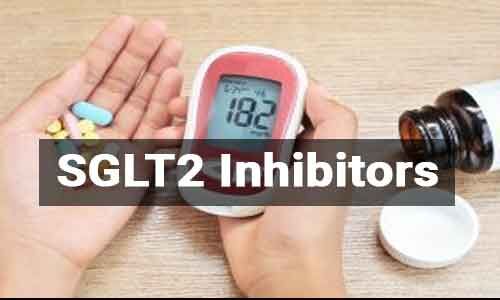- Home
- Medical news & Guidelines
- Anesthesiology
- Cardiology and CTVS
- Critical Care
- Dentistry
- Dermatology
- Diabetes and Endocrinology
- ENT
- Gastroenterology
- Medicine
- Nephrology
- Neurology
- Obstretics-Gynaecology
- Oncology
- Ophthalmology
- Orthopaedics
- Pediatrics-Neonatology
- Psychiatry
- Pulmonology
- Radiology
- Surgery
- Urology
- Laboratory Medicine
- Diet
- Nursing
- Paramedical
- Physiotherapy
- Health news
- Fact Check
- Bone Health Fact Check
- Brain Health Fact Check
- Cancer Related Fact Check
- Child Care Fact Check
- Dental and oral health fact check
- Diabetes and metabolic health fact check
- Diet and Nutrition Fact Check
- Eye and ENT Care Fact Check
- Fitness fact check
- Gut health fact check
- Heart health fact check
- Kidney health fact check
- Medical education fact check
- Men's health fact check
- Respiratory fact check
- Skin and hair care fact check
- Vaccine and Immunization fact check
- Women's health fact check
- AYUSH
- State News
- Andaman and Nicobar Islands
- Andhra Pradesh
- Arunachal Pradesh
- Assam
- Bihar
- Chandigarh
- Chattisgarh
- Dadra and Nagar Haveli
- Daman and Diu
- Delhi
- Goa
- Gujarat
- Haryana
- Himachal Pradesh
- Jammu & Kashmir
- Jharkhand
- Karnataka
- Kerala
- Ladakh
- Lakshadweep
- Madhya Pradesh
- Maharashtra
- Manipur
- Meghalaya
- Mizoram
- Nagaland
- Odisha
- Puducherry
- Punjab
- Rajasthan
- Sikkim
- Tamil Nadu
- Telangana
- Tripura
- Uttar Pradesh
- Uttrakhand
- West Bengal
- Medical Education
- Industry
SGLT2 inhibitors tied to ketoacidosis in latent autoimmune diabetes

Sodium-glucose co-transporter-2 (SGLT2) inhibitors can cause ketoacidosis in patients with latent autoimmune diabetes (LADA), a report on three cases in the American Journal of Medicine confirms.
"We emphasize the importance of early recognition of those at risk through the clinical risk score, and suggest targeted antibody testing be undertaken prior to consideration of SGLT2 inhibitor therapy," Dr. Brendan J. Nolan of Northern Hospital in Epping, Victoria, Australia, and colleagues write.
Up to 10% of adult-onset diabetes is due to latent autoimmune disease, in which a person has circulating islet autoantibodies but does not initially require insulin, the authors explain.
"A lean BMI has traditionally been a clinical feature that arouses clinical suspicion of latent autoimmune diabetes and prompts islet antibody testing," they add. "However, with the current obesity epidemic, bodyweight or BMI is no longer a reliable way of distinguishing latent autoimmune diabetes from type 2 diabetes."
The cases include a morbidly obese 56-year-old woman with a history of Hashimoto thyroiditis who developed nausea, vomiting, and confusion after stopping insulin and starting empagliflozin; a 68-year-old woman with weight loss, polyuria, polydipsia and fatigue after stopping mixed insulin and starting metformin/empagliflozin; and a 60-year-old man with known latent autoimmune diabetes who stopped taking insulin and oral hypoglycemic drugs due to a gastrointestinal illness.
Both female patients had a family history of type 1 diabetes. All patients were taken off SGLT2 inhibitors and put back on insulin.
The authors developed a five-point LADA clinical risk score: diabetes onset before age 50; acute symptoms at diagnosis; BMI below 25 kg/m2; a personal history of autoimmune disease; and a family history of autoimmune disease. They recommend autoantibody testing for individuals with a clinical risk score of 2 or greater.
For more details click on the link: https://doi.org/10.1016/j.amjmed.2019.12.006
Hina Zahid Joined Medical Dialogue in 2017 with a passion to work as a Reporter. She coordinates with various national and international journals and association and covers all the stories related to Medical guidelines, Medical Journals, rare medical surgeries as well as all the updates in the medical field. Email: editorial@medicaldialogues.in. Contact no. 011-43720751
Dr Kamal Kant Kohli-MBBS, DTCD- a chest specialist with more than 30 years of practice and a flair for writing clinical articles, Dr Kamal Kant Kohli joined Medical Dialogues as a Chief Editor of Medical News. Besides writing articles, as an editor, he proofreads and verifies all the medical content published on Medical Dialogues including those coming from journals, studies,medical conferences,guidelines etc. Email: drkohli@medicaldialogues.in. Contact no. 011-43720751


